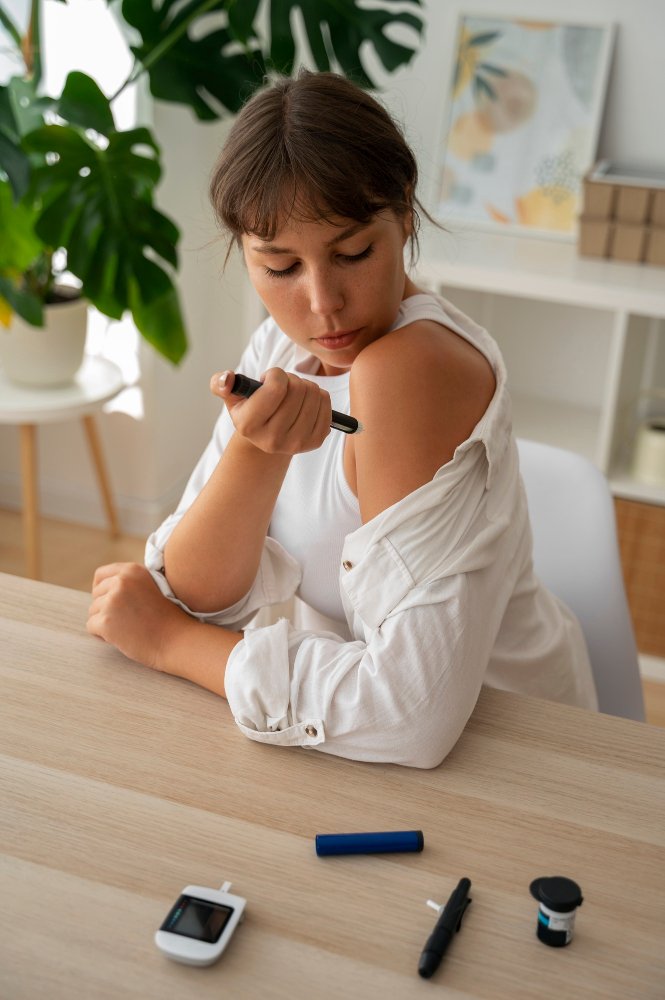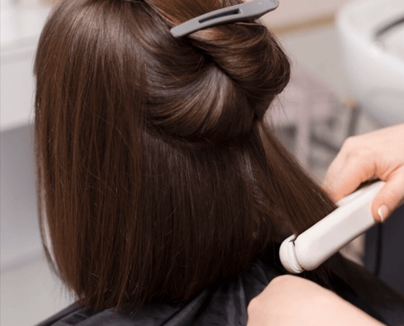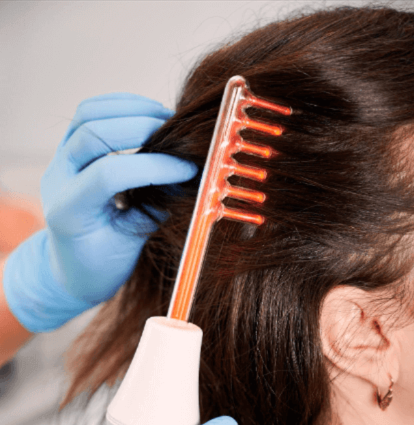Chronic wounds and delayed skin healing are common complications in patients with diabetes. Poor microcirculation, reduced collagen synthesis, and a weakened skin barrier make even minor injuries difficult to heal. Emerging research and clinical reports suggest that Rejuran Healer, a polynucleotide-based injectable treatment, may offer promising support in promoting skin regeneration in diabetic patients.
In this article, we explore the scientific rationale, clinical potential, and safety considerations of using Rejuran in individuals with diabetes, particularly for skin repair and wound healing.
🧬 What Is Rejuran?
Rejuran Healer is an injectable biostimulatory treatment that contains polynucleotides (PNs)—long-chain DNA fragments extracted from salmon sperm. These fragments are highly purified, biocompatible, and safe for human use.
Key therapeutic actions of Rejuran:
- Stimulates fibroblast proliferation
- Promotes angiogenesis (formation of new blood vessels)
- Enhances tissue regeneration at the cellular level
- Reduces inflammation
- Strengthens the epidermal barrier
These mechanisms are particularly relevant for impaired skin healing in diabetic patients.
🔬 Diabetes and Skin Healing: Why It’s Complicated
People with diabetes—especially those with poorly controlled blood glucose—experience:
- Impaired microcirculation: Hinders oxygen and nutrient delivery to tissues.
- Reduced collagen synthesis: Leads to fragile, slow-healing skin.
- Chronic inflammation: Delays wound closure and tissue remodeling.
- Increased infection risk: Weakens the skin barrier.
These factors contribute to chronic wounds, ulcers, delayed post-procedure recovery, and increased risk of scarring. Enhancing the skin’s regenerative capacity is key to addressing these issues.
🧪 How Rejuran May Benefit Diabetic Skin
1. Promotes Angiogenesis
Studies have shown that PNs in Rejuran can stimulate endothelial cells, encouraging new capillary formation. Improved microvascularization helps deliver essential nutrients and oxygen to compromised skin.
2. Accelerates Collagen Regeneration
Diabetic skin has slower and weaker collagen remodeling. Rejuran activates fibroblasts, restoring the extracellular matrix and dermal integrity.
3. Reduces Inflammatory Markers
Chronic inflammation is a hallmark of diabetic skin. PNs have anti-inflammatory properties, modulating cytokine activity and promoting faster, balanced wound healing.
4. Improves Epidermal Barrier Function
Diabetic skin is prone to dryness and cracking due to lipid and protein deficits in the epidermis. Rejuran supports the skin barrier, reducing trans-epidermal water loss (TEWL) and minimizing infection risk.
📚 Clinical and Experimental Evidence
🔍 1. In Vitro Studies
Laboratory research shows that PNs:
- Enhance fibroblast migration
- Increase keratinocyte proliferation
- Promote growth factor expression (e.g., VEGF, TGF-β)
These cellular responses are critical to wound healing and are often blunted in diabetic environments.
🔍 2. Animal Studies
Rodent models with induced diabetes showed accelerated wound closure and re-epithelialization with PN-based treatments. Enhanced granulation tissue formation and reduced necrosis were also observed.
🔍 3. Emerging Clinical Reports
While large-scale clinical trials in diabetic populations are limited, several case reports and practitioner experiences in Asia suggest:
- Improved healing of diabetic foot ulcers and surgical wounds
- Better recovery from aesthetic procedures in diabetic patients (e.g., microneedling, CO2 laser)
- Reduced post-inflammatory hyperpigmentation and scarring
More formal trials are underway to quantify these outcomes.
🩺 Practical Considerations for Diabetic Patients
✅ Ideal Use Cases:
- Chronic or slow-healing wounds
- Atrophic skin in elderly diabetics
- Post-laser or microneedling healing support
- Fragile skin prone to breakdown
- Adjunct therapy for mild diabetic ulcers (under specialist supervision)
⚠️ Safety and Cautions:
- Always consult a physician: Especially for poorly controlled diabetes or existing ulcers.
- Monitor blood sugar closely: During and after treatment, as wound healing may temporarily alter metabolic demand.
- Avoid injecting into active infection sites or necrotic tissue.
- Rejuran is not a substitute for standard diabetic wound care (e.g., debridement, pressure offloading, antibiotics).
🔄 Treatment Protocol
For diabetic skin healing, a modified Rejuran protocol may be used:
🗓️ Schedule:
- Initial treatment: 3–4 sessions, spaced 3–4 weeks apart
- Maintenance: 1 session every 4–6 months, or as needed
👨⚕️ Delivery Methods:
- Intracutaneous injection: For general skin improvement
- Microneedling-assisted delivery: For diffuse skin damage
- Targeted mesotherapy: Around wound edges to stimulate healing
All procedures should be performed under sterile conditions by a trained provider with experience in diabetic skincare.
🧴 Post-Treatment Care for Diabetic Skin
- Use non-comedogenic, hydrating skincare with barrier-supporting ingredients (ceramides, panthenol)
- Apply topical antibiotics or antiseptics if advised
- Monitor the injection sites for redness, swelling, or delayed healing
- Avoid harsh skincare, heat, or trauma to the area for 3–5 days
- Maintain excellent glycemic control to support wound healing
✅ Summary: Is Rejuran a Viable Option for Diabetic Skin?
| Benefits | Limitations |
|---|---|
| Enhances wound healing | Not FDA-approved specifically for diabetic ulcers |
| Promotes angiogenesis and collagen | Requires sterile technique and medical supervision |
| Safe, biocompatible formulation | Clinical evidence still emerging |
| Reduces inflammation | May not be suitable for infected or ischemic wounds |
Rejuran Healer shows significant promise as a regenerative adjunct in treating diabetic skin issues—particularly in mild to moderate cases or post-procedural healing. It should be used in conjunction with standard medical care, not as a replacement.
💬 Final Thoughts
Rejuran may represent a new frontier in diabetic skin management, offering regenerative support where traditional therapies may fall short. While more robust clinical trials are needed, early evidence suggests it can help restore skin integrity, accelerate healing, and reduce scarring in diabetic individuals—especially when used under professional supervision.
If you’re a healthcare provider or patient interested in advanced skin regeneration, Rejuran might be worth considering as part of a comprehensive, medically guided care plan.




